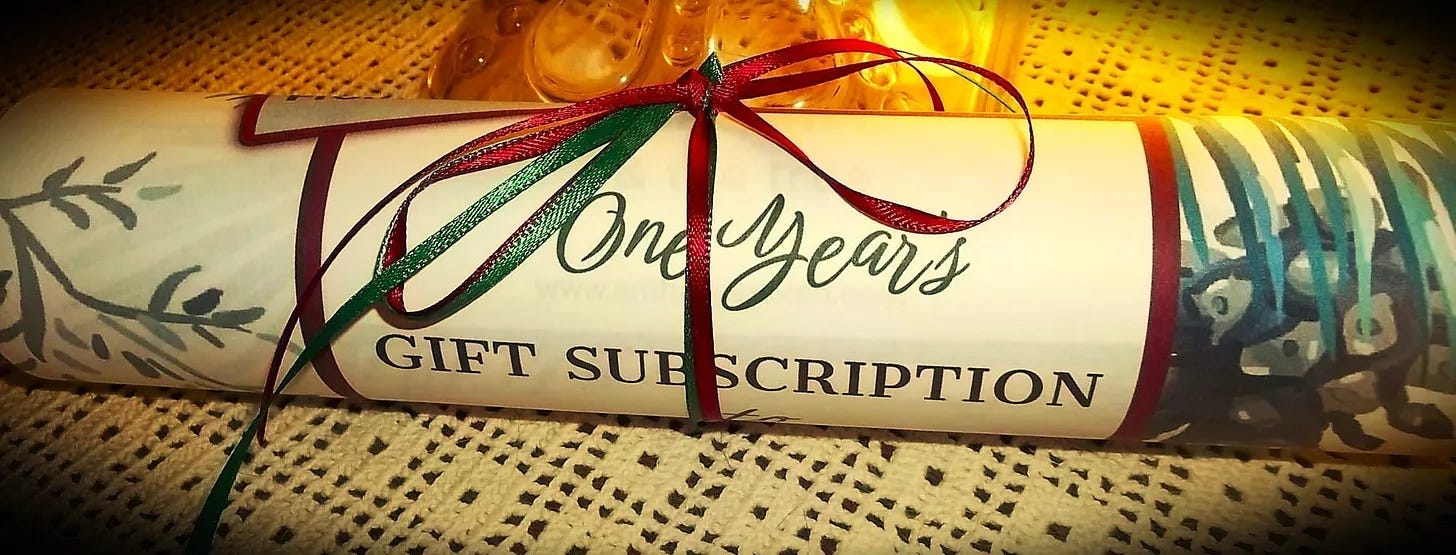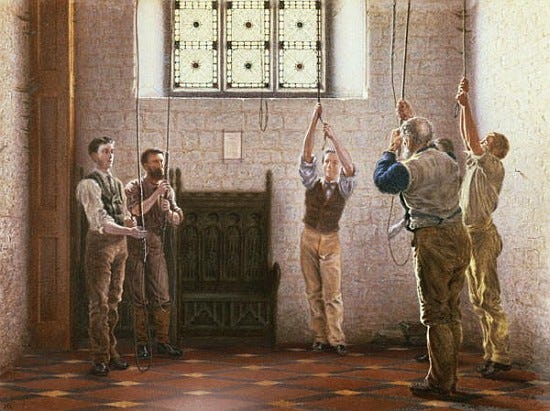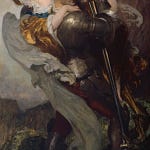Advent is here, and so are our Christmas offers at Word & Song!
Now through Epiphany new paid, gift, and upgraded subscriptions are 25% off.
Paid subscribers see a special gift offer at the very bottom of this page.
“The time draws near the birth of Christ,” says the author of our Poem of the Week, and he says it in sadness, because during the year he lost his dearest friend, Arthur Hallam, the college fellow who was going to be his brother-in-law — so that he lost not only a friend, but a brother, who might have been the father of nieces and nephews gathered round the Christmas tree at the fireside, or sitting with the rest of their kin in the village church on Christmas. It was not to be. Arthur died that summer in Vienna, of a sudden cerebral hemorrhage. And our author, Alfred Tennyson, will have that aching experience of hearing a beloved voice which is not there, or of not hearing the voice when everything in you expects to hear it. He will recall that on the previous Christmas, he and his beloved sister Emilia, whom Arthur was to marry, sang with him a certain carol, but when they sing it now, on this Christmas, they have to sing it with some determination, or else they wouldn’t sing it at all; and their eyes are dim.
But before Christmas day, he hears the bells ringing in the night. They have voices, singing out what the angels sang to the shepherds, “Peace on earth, good will to man.” Each of the four villages roundabout has its own tolling voice, and if the village men did what used to be traditional in England, they were “ringing changes” on their array of bells in the belfry, notes following notes according to patterns that sound wild and orderly at once. But whatever the notes may be, on this night they say the same thing, ringing for peace and good will.
How strange it is, that the older I get, the nearer to me my own childhood feels, and I think more and more often of my grandparents, all gone, my father, who died more than thirty years ago, my many aunts and uncles, most of them also gone, and my 39 first cousins, so many of whom I haven’t seen since I was young. I can hear their voices. I can see them ranged around the tables we set up in my grandmother’s house, extending from the kitchen through the living room all the way through the parlor on up to the front door, so that everybody could fit. Those days, we might say, will never come again. The voices of children have passed into the bright healthy voices of youth, and by now into the rougher voices of people with many years on them; and that’s especially true of the boys, whose voices change so quickly and so markedly. Yet somehow even in the old man, the voice of his boyhood sounds, though only someone who knew him well in those far-off days can hear it or even imagine it.
Tennyson was an honest man. In this, the greatest of his poems, so many of which are among the greatest of their kind in English, he dresses nothing up, he pretends to no thought he does not think or feeling he does not feel; he is not just writing about his sorrow but in it and through it. And here are the bells tolling their solemn yet merry news of peace and good will, and somehow they pierce that sorrow. They do not overlay it with a surface of cheer. They do not distract. They do not make light of anything. They pierce.
At the beating heart of this good news, there is the Child. “And he took a small child, and he set him in their midst.” If we have only economics or biology in mind, the Child is something not yet fully human. He has to mature. He has to earn money. He has to do something, and not simply be. But if the Child is the aim of all, that suggests to us that no good thing in this life will be lost forever; nothing is merely the sport of time, or merely the sufferer of change and decay. I trust I will hear those voices again
XXVIII The time draws near the birth of Christ: The moon is hid; the night is still; The Christmas bells from hill to hill Answer each other in the mist. Four voices of four hamlets round, From far and near, on mead and moor, Swell out and fail, as if a door Were shut between me and the sound: Each voice four changes on the wind, That now dilate, and now decrease, Peace and goodwill, goodwill and peace, Peace and goodwill, to all mankind. This year I slept and woke with pain, I almost wished no more to wake, And that my hold on life would break Before I heard those bells again: But they my troubled spirit rule, For they controlled me when a boy; They bring me sorrow touched with joy, The merry merry bells of Yule.
Listen to this episode with a 7-day free trial
Subscribe to Word & Song by Anthony Esolen to listen to this post and get 7 days of free access to the full post archives.











